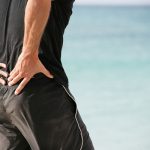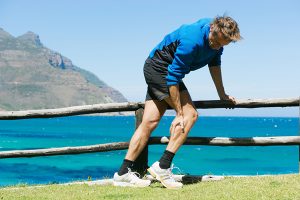Muscle cramps: How to prevent and soothe the pain
Muscle cramps are never fun. Whether you earned them after a hard day of exercise or you are just one of the unlucky folks that get spasms late at night, muscle cramps are always an unwelcome experience.
Luckily, there are a few things that one can do at home to try to prevent as well as alleviate these symptoms, according to osteopathic physician Peter Bidey, DO, MSEd, who practices family medicine in Philadelphia and is a member of the faculty at Philadelphia College of Osteopathic Medicine.
If a patient comes into Dr. Bidey’s office complaining of cramps, he offers them the following tips:
1. Hot bath or heat: If you are suffering from muscle cramps, soaking in a hot bath with or without Epsom salt (magnesium sulfate) may provide relief. Some patients receive relief by using a heating pad. Either way, heat increases blood flow to the area and hopefully decreases your pain.
2. Don’t forget to stretch. If you are actively having a muscle cramp, you can always try gently stretching the muscle itself. Often this can help relax the tight muscles and provide some relief. If you are prone to cramping, make sure you stretch prior to any activity.
3. Always stay hydrated. Dehydration is a major cause of muscle cramps. If you plan on exercising or are just someone that gets muscle cramps often, you always want to make sure that you are staying well hydrated.
4. Balance your electrolytes. Low levels of potassium and magnesium can cause many to have muscles cramps. Make sure to eat a healthy diet full of fruits and vegetables. If you are exercising often, sometimes a hydration drink with electrolytes can be a benefit. Take note: If you have kidney disease or electrolyte imbalances are severe and/or occurring often, it would be prudent to follow up with your health care provider. Many medications and metabolic conditions can cause imbalances that can become unsafe if electrolytes are too high or too low.
If your muscle cramps cause severe discomfort, are associated with swelling, redness or muscle weakness, or don’t improve with self-care, Dr. Bidey suggests a follow up with your health care practitioner.

